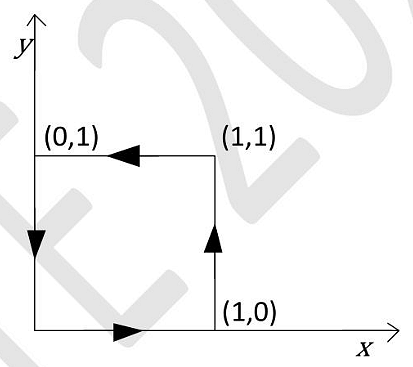Match the following:A Null set I {x : x is a real number} B Singleton set II {x : x is a whole number and x < 0} C Infinite set III {x : x is an even prime number}
| A | Null set | I | {x : x is a real number} |
| B | Singleton set | II | {x : x is a whole number and x < 0} |
| C | Infinite set | III | {x : x is an even prime number} |
- (a)—(i), (b}—(ii), (c)—(iii)
- (a)—(iii), (b)—(ii), (c)—(i)
- (a)—(ii), (b}—(i), (c)—(iii)
- (a)—(ii), (b}—(iii), (c)—(i)
The Correct Option is D
Solution and Explanation
The given sets are:
- (a) Null set
- (b) Singleton set
- (c) Infinite set
Now, we need to match the sets with the appropriate conditions.
(i) \( \{ x : x \text{ is a real number} \} \)
(ii) \( \{ x : x \text{ is a whole number and } x < 0 \} \)
(iii) \( \{ x : x \text{ is an even prime number} \} \)
Let's analyze each option:
- The Null set (a) has no elements, so it matches with (iii), where the condition is for even prime numbers, and the only even prime is 2, which is a singleton.
- The Singleton set (b) contains exactly one element, and it can be matched with (ii), where \( x \) is a whole number and less than zero.
- The Infinite set (c) contains infinitely many elements, so it matches with (i), where \( x \) is a real number.
So, the correct option is (D): (a)—(ii), (b}—(iii), (c)—(i)
Top Questions on Sets
- Mode of the data \( 19, 2, 6, 12, 12, 3, 5, 6, 18, 14, 6, 17, 2 \) is:
- The mean and mode of 5, 3, 9, 1, 9, 8, 9, 4 are m and n respectively, the value of m+n is?
- If A = {1, 2, {3, 4}, 5}, then which of the following is incorrect?
- If A and B are the two sets containing 3 and 6 elements respectively, then what can be the maximum number of elements in A∪B?
- For \(\vec{F}=(x+y)\hat{i}+(x+y)\hat{j}\) the value of \(\oint\vec{F}.d\vec{r}\) along the path shown in the figure is ________. Give your answer as an integer.

Questions Asked in AP POLYCET exam
- What is the process called when fats and oils are oxidised and their smell and taste change?
- AP POLYCET - 2025
- Chemical Reactions
- What is the law of conservation of mass?
- AP POLYCET - 2025
- Chemical Reactions
- What is the product formed when magnesium ribbon is burnt in oxygen?
- AP POLYCET - 2025
- Chemical Reactions
- What is the significance of writing physical states in a chemical equation?
- AP POLYCET - 2025
- Chemical Reactions
- What is the law of conservation of mass?
- AP POLYCET - 2025
- Chemical Reactions